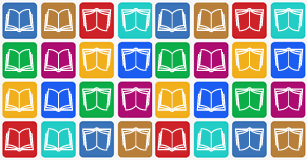Language Arts

Sheppard Software's Language Arts page features a variety of games for different grade levels. Elementary students (and anyone who needs a refresher) can play the.
Formal standardized tests and informal Twitter messages with only 140 characters both require a command of the language to communicate effectively. Support your elementary through high school students by enriching their language knowledge and skill with the comprehensive units that span poetry to prepositions. Engaging activity books, word finds, fill-ins, learning centers, test prep, and a variety of other tools await! Supplement your language lessons with these challenging units to give your students the edge! Grammar Worksheets Following Directions English Literacy Learning Centers Listening Reading Comprehension Skills Spelling, Vocabulary, and Reading Comprehension Proofreading Parts of Speech Plurals Punctuation Conjunctions Reference Skills Word Study Writing Other Language Skills Letter Word Ladders Figurative Language Spelling Machine Puzzle Printables Glyphs Weekly Reading Books Prepare for an entire week at once! Reluctant Reader Books Have a suggestion or would like to leave feedback?
The six language arts, as designated by the National Council of Teachers of English (NCTE) and the International Reading Association (IRA) (Standards for the English Language Arts, 1996), are listening, speaking, reading, writing, viewing, and visually representing. The first four have traditionally been considered to be the language arts; however, since visual media have become more important in everyday life, viewing and visually representing have become more important as means of communicating. The Language Arts • Listening: understanding spoken language • Speaking: communicating ideas through oral language • Reading: understanding written language • Writing: communicating through written language • Viewing: understanding visual images and connecting them to accompanying spoken or written words • Visually Representing: presenting information through images, either alone or along with spoken or written words All meanings that are attached to the words that we use are obtained through experience.
Infants begin experiencing the world as soon as they are born. From the beginning, they experience light and darkness, being held and fed, having their diapers changed, and many other things. These experiences are often accompanied by words spoken by people around them. The language arts are tied to experience through words and the images that words represent. Listening involves making connections between spoken words (abstract oral symbols) and their meanings.
Speaking involves taking command of the words by using them orally to communicate with others. Reading involves translating written symbols into the oral symbols that they represent and, finally, into their meanings; and writing involves encoding written symbols so that they will convey information to others.
Viewing involves interpreting the images for which words stand and connecting visual images in videos, computer programs, and websites with accompanying printed or spoken words. Visually representing involves presenting information through still or motion pictures, either alone or accompanied by written or spoken words. Although children come to school with a wide variety of background experiences, their experiences may or may not be applicable to the focus of the school.
Some know the language of street corners and alleys but do not know the language required for school activities. Children from low socioeconomic backgrounds may not have had experiences with computers or even such school supplies as pencils, scissors, and crayons and may not have traveled beyond their immediate neighborhoods. Such children are limited in their exposure to a variety of places, people, animals, and other things. Those children who have had varied experiences related to topics covered in the schools' curricula have enhanced comprehension of material that they listen to, read, and view and more relevant material to draw on when they speak, write, or prepare visual presentations. Opmanager License File Cracks there. Schoolchildren are developing all of their language skills simultaneously.